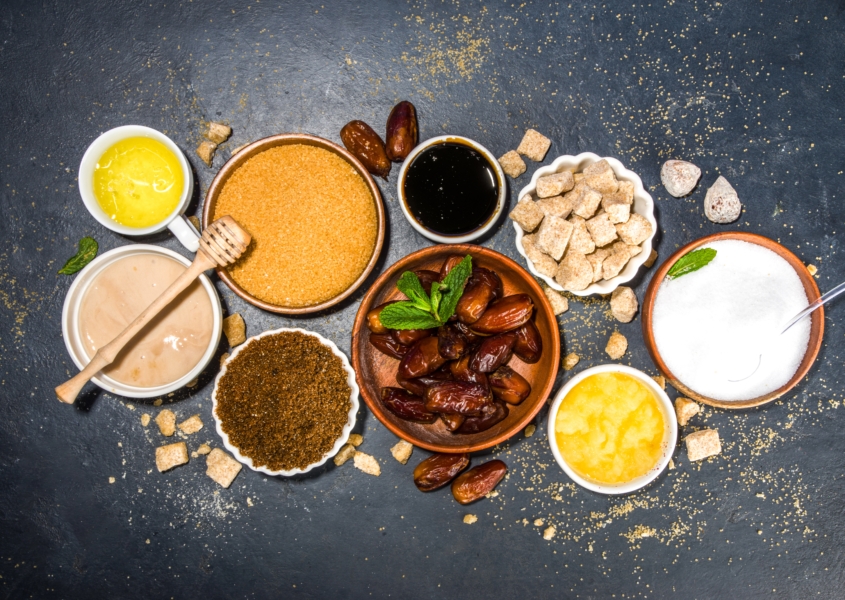Reduce Sugar Intake & Kick the Craving: Quick Tips to Improve Your Diet Today
Are you ready to uncover the sweet truth about sugar and take control of your diet? In this article, we will dive into the practical tips that can help you reduce sugar intake in your diet and make healthier choices.
Why is it worth the effort to reduce sugar intake?
Sugar has become a major issue in our modern diets, contributing to weight gain, obesity, and various health problems. The sweet taste of sugar can be addictive, making it difficult to resist indulging in sugary treats. However, consuming excessive amounts of sugar can have detrimental effects on our health.
When we consume sugar, our bodies break it down into glucose, which is used as a source of energy. However, consuming too much sugar can overload our bodies with glucose, leading to a spike in blood sugar levels. This spike triggers the release of insulin, a hormone that helps regulate blood sugar. Over time, this constant cycle of high blood sugar levels and insulin release can lead to insulin resistance, a condition where our cells become less responsive to insulin’s effects. Insulin resistance is a precursor to type 2 diabetes.
Excessive sugar consumption has also been linked to weight gain and obesity. When we consume sugar, our bodies convert any excess glucose into fat, which is stored in adipose tissue. This can lead to an increase in body weight and body fat percentage. Additionally, sugar-sweetened beverages, such as sodas and fruit juices, are high in calories and can contribute to weight gain if consumed in excess.
Understanding hidden sources of sugar
Reducing sugar in your diet requires a keen understanding of the hidden sources of sugar in the foods you consume. While it may be obvious that sugary snacks and desserts are high in sugar, there are many other foods that contain hidden sugars.
Processed foods, such as packaged snacks, condiments, and sauces, often contain added sugars to enhance flavor and extend shelf life. These added sugars can be listed under various names, including sucrose, high fructose corn syrup, and dextrose. By familiarizing yourself with these names, you can better identify hidden sugars in food products. Even seemingly healthy foods, such as yogurts and granola bars, can contain high amounts of added sugars. Manufacturers often add sugars to these products to enhance taste and texture. It’s essential to read food labels and choose products with lower sugar content or opt for unsweetened versions.
It’s also important to be aware of the natural sugars found in fruits and dairy products. While these sugars are not the same as added sugars, they still contribute to your overall sugar intake. However, the natural sugars found in whole foods are accompanied by other nutrients, such as fiber and vitamins, which can help slow down the absorption of sugar into your bloodstream.
The benefits of reducing sugar in your diet
Reducing sugar in your diet can have numerous benefits for your overall health and well-being. Firstly, it can help you maintain a healthy weight. By cutting back on sugary snacks and beverages, you can reduce your calorie intake and promote weight loss. Additionally, reducing sugar can help stabilize your blood sugar levels and improve insulin sensitivity, reducing the risk of developing type 2 diabetes.
Lowering your sugar intake can also have positive effects on your energy levels. While consuming sugar may provide a temporary energy boost, it is often followed by a crash, leaving you feeling tired and sluggish. By choosing healthier alternatives and reducing your reliance on sugar for energy, you can experience more sustained energy throughout the day. Furthermore, reducing sugar can improve your dental health. Sugar is a major contributor to tooth decay and cavities. When we consume sugary foods and drinks, the bacteria in our mouths feed on the sugars and produce acid, which can erode tooth enamel. By cutting back on sugar, you can protect your teeth and maintain better oral health.
Practical tips to reduce sugar intake
Now that you understand the impact of sugar on your health and the hidden sources of sugar, let’s dive into some practical tips to help you reduce sugar intake.
1. The importance of reading food labels
Reading food labels is crucial when it comes to reducing sugar in your diet. Take the time to carefully examine the nutrition facts panel and ingredient list of the products you purchase. Look for products that have low sugar content or opt for unsweetened versions. When reading the ingredient list, be on the lookout for various names of added sugars, such as sucrose, high fructose corn syrup, and dextrose. The higher up on the ingredient list these sugars appear, the more sugar the product contains.
2. Plan Meals and Snacks
One of the benefits to planning your daily meals and snacks is that it lessens your chances of craving “convenience” foods (think pre-packaged meals, treats, snacks, etc.) that are often high in sugar, sodium and preservatives. By making sure you have readily available meals and healthy snacks at your disposal, you always have healthy food within reach. For snacks, consider fruits, vegetables, crackers, unsalted nuts, etc.
If you struggle to plan meals or need assistance in the kitchen, Chefs for Seniors can help with meal-planning, grocery shopping and cooking to ensure you are getting healthy meals regularly!
3. The role of exercise in reducing sugar cravings
Regular exercise can play a significant role in reducing sugar cravings and helping you maintain a low-sugar diet. When we exercise, our bodies release endorphins, which are natural mood-boosting chemicals. These endorphins can help reduce cravings for sugary foods and promote a sense of well-being.
Furthermore, engaging in physical activity can help regulate blood sugar levels and improve insulin sensitivity. This can make it easier for your body to process and utilize the sugars you consume, reducing the risk of blood sugar spikes and insulin resistance.
Incorporating a combination of cardiovascular exercise, strength training, and flexibility exercises into your routine can provide a variety of benefits for your overall health and well-being.
Incorporating healthier alternatives to satisfy your sweet tooth
Reducing sugar intake doesn’t mean you have to give up on all sweet treats. There are plenty of healthier alternatives that can satisfy your sweet tooth without the excessive sugar content. Let’s explore some options.
1. Natural sweeteners
Opting for natural sweeteners can be a healthier alternative to refined sugars. Stevia, for example, is a natural sweetener extracted from the leaves of the Stevia plant. It is significantly sweeter than sugar, so you’ll need less of it to achieve the desired sweetness. Stevia has a minimal impact on blood sugar levels, making it suitable for individuals with diabetes or those looking to reduce sugar intake.
Another natural sweetener to consider is monk fruit extract. Monk fruit is a small melon-like fruit native to Southeast Asia. Its extract contains natural sweetness without the calories or impact on blood sugar levels. Monk fruit sweeteners are available in powder, liquid, and granule forms, making them versatile for various recipes.
2. Whole fruits
Whole fruits are an excellent source of natural sweetness, fiber, and essential vitamins and minerals. Instead of reaching for sugary snacks or desserts, try satisfying your sweet tooth with a piece of fruit. Berries, for example, are packed with antioxidants and have a natural sweetness that can curb your cravings. You can also get creative with how you incorporate fruits into your diet. Blend them into smoothies, add them to yogurt or oatmeal, or freeze them for a refreshing, guilt-free dessert. As we mentioned previously, the natural sugars in fruits are accompanied by fiber, which helps slow down the absorption of sugar into your bloodstream, preventing blood sugar spikes.
3. Dark chocolate
If you’re a chocolate lover, you’ll be pleased to know that dark chocolate can be a healthier alternative to milk chocolate. Dark chocolate with a high percentage of cocoa solids contains less sugar and more antioxidants compared to milk chocolate. Look for dark chocolate with at least 70% cocoa solids for the most health benefits.
Enjoy a small portion of dark chocolate as a sweet treat, savoring each bite. The richness and intensity of dark chocolate can satisfy your cravings with less sugar. Just be mindful of portion sizes, as even dark chocolate should be consumed in moderation.
Get help making meals meet your health goals
Using a meal service like Chefs for Seniors can help take the stress out of planning and making healthy meals. Our skilled personal chefs specialize in working with individuals to understand their specific dietary needs and food preferences, and create healthy fresh meals to accomplish those goals!
Disclaimer: This article is for informational purposes only and does not provide medical advice. While we at Chefs for Seniors specialize in providing healthy, customizable meals, we are not medical professionals. Always consult with your healthcare provider for medical advice, diagnoses, and treatment plans to fit your specific needs.

 Shutterstock
Shutterstock shutterstock
shutterstock